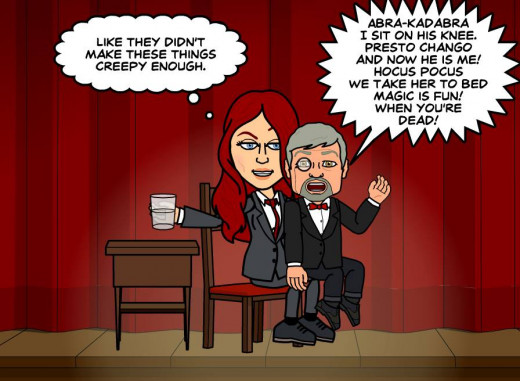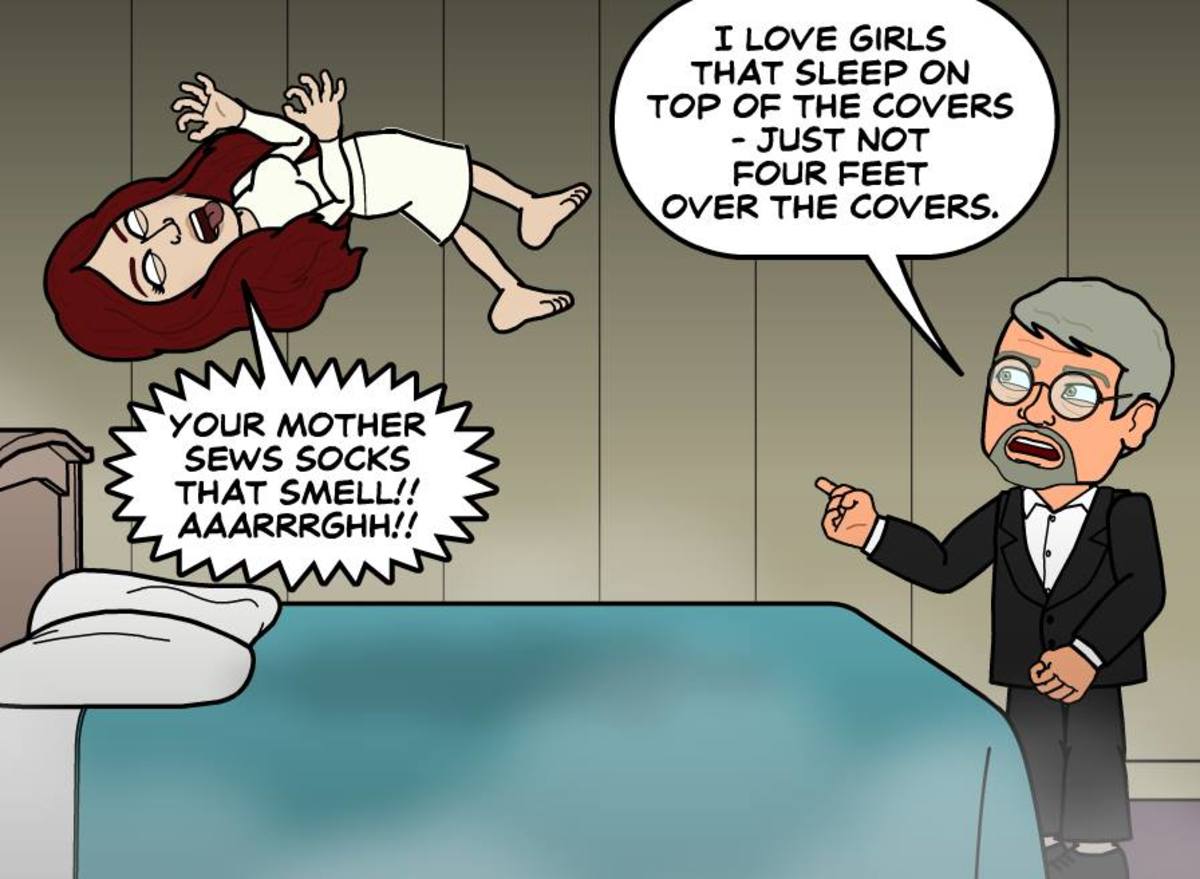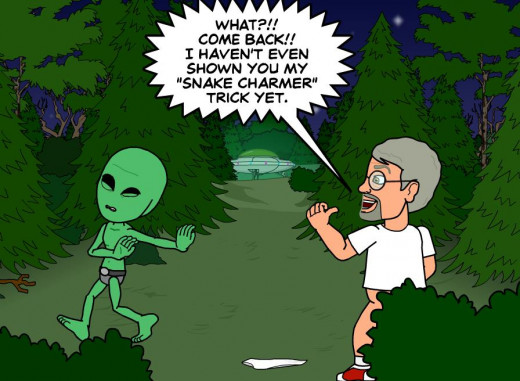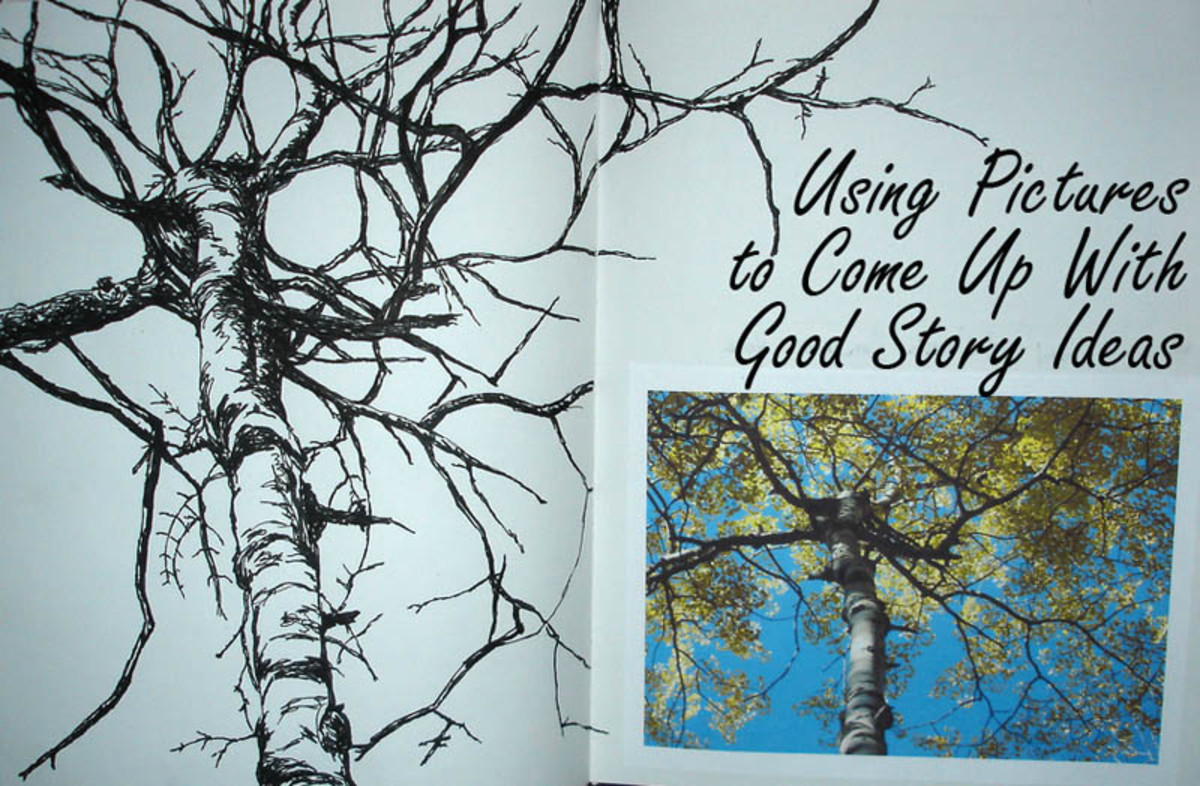How to Find the Creep Factor in Writing

Good Old Fashioned Nightmare Fuel
Everyone has one of these things.
We have that one thing that creeps us out. Regardless of how old we get or how many creepy things we’ve seen since seeing that really bad creepy thing the first time, we get creeped out even at the thought of it. Sometimes it’s something innocuous like a bug or a ventriloquist dummy. Other times it’s something more overt like a monster seen in a film from our childhood.
I’ve had more than my fair share of these. Growing up in Howell, NJ, there was a plethora of things that could happen to a young boy walking home in the pinelands on a dark October night. Sure, to an adult the Jersey Devil is folklore; however, to a twelve year old boy with an active imagination, that unseen flag waving in the wind is the flapping of a local monstrosity with ten schoolboys in its stomach.
How many people know that the original Friday the 13th was filmed in New Jersey? Camp Crystal Lake was actually in Blairstown. On a warm sultry summer evening my mind would hear the whispering of “Get, get, get, get, out, out, out, out”. It didn’t take a long stretch of imagination to see that if a murdering psychopath could exist in one part of the state, what’s to keep him there when there are so many wandering kids walking home in the dark?
Which of these commons objects do you find creepy?
Then there are the things that don’t come from your imagination – like bugs. Growing up in Central New Jersey in the 70’s we had a lot of bugs. Specifically, we had an overabundance of gypsy moths and ticks. One summer I can clearly remember the trees raining wood ticks and furry gypsy moth caterpillars everywhere. Ticks which will suck your blood like a tiny vampire and spread disease and gypsy moths which feel icky, bleed green, and give you a rash if you touch them were pestilence. Now, imagine jumping into a bathtub full of them.
It gives me the willies just thinking about that.
But that’s the thing, isn’t it? As writers, we need to find a whole spectrum of feelings or things that can make the reader feel any emotion under the sun. The writer has to find some way to draw these personal experiences he has and make them real.
And while most people can think of their first love or the first time they were ever really embarrassed, it is rare that the writer would want to go into his vault of personal nightmares to draw out one of those monstrosities.
Let’s take a closer look.

Going into Your Personal Vault of Horrors
A good horror writer needs to have unlimited access to his own personal experiences – especially those demons that make him bolt upright out of a sound sleep, screaming.
If he’s doing his job properly, the job should not necessarily be to create a new experience but to alter and communicate his horrific experience to the reader. Like an actor, a good writer has to feel and draw from some kind of experience. Show me a coward and I’ll show you the makings of a good horror writer. Why? Because a coward knows what it’s like to be scared. He knows fear and while he may not know why he’s afraid he can describe his reaction to a particular event or situation.
I can draw on my experience as a martial artist and the first time I had to face an opponent in combat. I can remember when I was fifteen years old and felt what they coined as “butterflies” before that fight. I’m forty-seven years old now and I can still picture that fear in my head.
I think a good horror writer would not be the brave daredevil – although in my mind, that would be a unique perspective – but the man that can conceive of everything possible going wrong. My opinion is that this writer should take something that is quite mundane and turn it into something horrifying. I can picture a salesman going to an old woman’s house and while he’s speaking to that elderly woman he starts to see her face begin to melt revealing that in reality the woman was a carnivorous alien.
Only a man who’s had to go door to door selling insurance thinking somewhere in the back of his head, every time he went into a stranger’s house, would think “…and they never saw him again.”
Then there’s imagination.
I’ve never swam with a shark. I don’t think I ever will. The reason why I don’t think I ever will is because I can imagine the bowel releasing fear of swimming in the same atmosphere with something that is larger, hungrier, faster, and more savage than I’ll ever know. I also know that my very presence within that environment… those waters… is enough to attract that terrible beast and a small amount of blood within that water would be enough to get that thing to rip me to pieces.
Imagine the terror. Imagine having to swim twenty-five feet in a pool with a hungry shark. Imagine the thoughts going in your head as you’re going to either walk slowly or swim with as little disturbance as possible while in that pool. Or perhaps you’d try a different strategy by going all out with as fast as an Australian crawl and flutter kick will go to get you out of the water. Imagine a close call as a shark swims by your side or touches your toe as you try to get out of the pool.
I think there is nothing more terrifying than what can be imagined in the mind of a true neurotic.

Final Words
A frightened man has a great reservoir of terror to draw from.
I am a frightened man. My imagination is a scary place. I think about things that I shouldn’t. Show me a vampire and I’ll show you my supersoaker full of garlic water. Show me a zombie and I have a tool shed full of metal objects that can pulverize a skull. Show me a lycanthrope and I’ll find a way to create silver BB gun pellets.
You think of a lot of things when you’re frightened. When you know your enemy, mythological or not, you think of all of the precautions you can take. When you don’t know your enemy, you need to think of things that can stop anything. Heck, even a vampire can fall into a booby trap and get caught and destroyed by wooden punji sticks.
Sure, you can call me paranoid or you can call me imaginative. Maybe I just read too many comic books.
However, when we are looking to find things that will frighten other people, we need to look at what frightened us and where that primal fear was. If you know that there’s a spider in your room, do you sleep easier? Is there a monster in your closet? What else is with you in the dark? What’s in the food you eat? What’s in the water you drink? Is the shooting star in the sky a meteor or the beginnings of an alien invasion?
Where do these thoughts come from? Remember your childhood. You were afraid of the giant clown at the circus and a few years later we were afraid of John Wayne Gacy – then Stephen King made Pennywise the Clown.
As we grew older we found different more sophisticated things to be afraid of – things that could actually hurt us. We learned to be afraid of poverty, guns, hunger, and disease. To combat these, we made social programs, gun control, food stamps, and vaccinations. This didn’t stop those monsters; this only helped us get to sleep.
Essentially, we have our fear of death, our fear of disfigurement, our fear of losing our soul or spirit, and our fear of pain (psychological and physical). When we find ourselves in danger of those things we remember that fear. And while we never will experience something like Godzilla, we can certainly imagine a creature like that ending our lives.
When you can go into the suspense and minutiae of that experience, you’ve discovered what it will take to write and frighten people.
How did you like my article?
© 2013 Christopher Peruzzi








